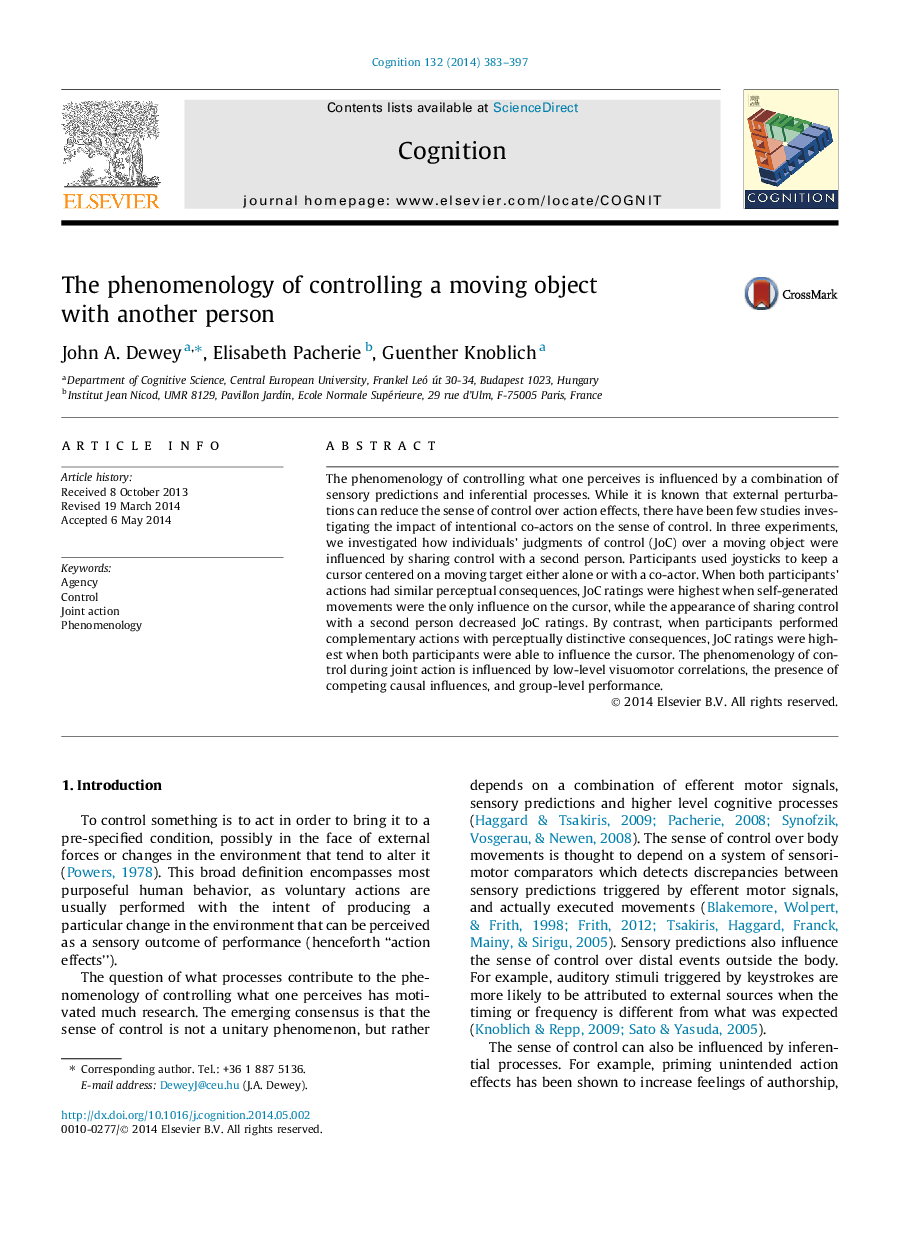| Article ID | Journal | Published Year | Pages | File Type |
|---|---|---|---|---|
| 10457531 | Cognition | 2014 | 15 Pages |
Abstract
The phenomenology of controlling what one perceives is influenced by a combination of sensory predictions and inferential processes. While it is known that external perturbations can reduce the sense of control over action effects, there have been few studies investigating the impact of intentional co-actors on the sense of control. In three experiments, we investigated how individuals' judgments of control (JoC) over a moving object were influenced by sharing control with a second person. Participants used joysticks to keep a cursor centered on a moving target either alone or with a co-actor. When both participants' actions had similar perceptual consequences, JoC ratings were highest when self-generated movements were the only influence on the cursor, while the appearance of sharing control with a second person decreased JoC ratings. By contrast, when participants performed complementary actions with perceptually distinctive consequences, JoC ratings were highest when both participants were able to influence the cursor. The phenomenology of control during joint action is influenced by low-level visuomotor correlations, the presence of competing causal influences, and group-level performance.
Related Topics
Life Sciences
Neuroscience
Cognitive Neuroscience
Authors
John A. Dewey, Elisabeth Pacherie, Guenther Knoblich,
